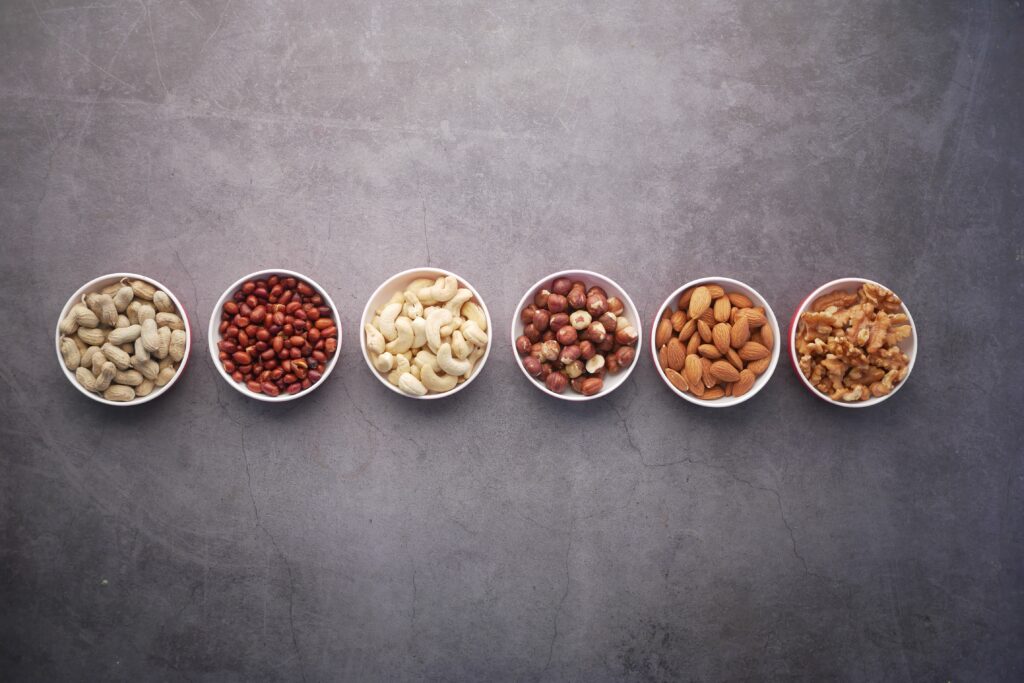Strawberries, known for their vibrant color and juicy flavor, are not just a tasty treat, but also a powerhouse of antioxidants. Packed with essential nutrients like vitamin C and anthocyanins, strawberries offer a range of health benefits. In terms of immune support, these delectable berries provide 100% of your daily vitamin C needs, helping to bolster your body’s natural defenses. Additionally, the antioxidants found in strawberries play a key role in promoting heart health by reducing the risk of heart attack. Furthermore, strawberries may possess protective properties against cancer, thanks to their ability to minimize inflammation and inhibit the spread of cancer cells. For expectant mothers, the folate content in strawberries is crucial for proper DNA synthesis and neural tube development during pregnancy. With relatively low sugar content compared to other fruits, strawberries are an ideal choice for those seeking to reduce their sugar intake. Each cup of strawberries contains a mere 53 calories, along with valuable nutrients such as fiber, protein, vitamin C, and folate. To fully reap the benefits of strawberries, it is important to store them properly in the refrigerator, in an airtight container lined with a paper towel. Lastly, the versatility of strawberries allows them to be enjoyed in a variety of ways, such as adding them to breakfast bowls, smoothies, toasts, and salads. Incorporating strawberries into one’s diet not only provides a burst of flavor but also offers a multitude of health advantages.

Health Benefits of Strawberries
Strawberries as a Source of Antioxidants
Strawberries are known for their high antioxidant content, particularly vitamin C and anthocyanins. Antioxidants help to protect the body’s cells from damage caused by free radicals, which are unstable molecules that can contribute to chronic diseases and accelerate the aging process. The antioxidants found in strawberries can neutralize these free radicals and reduce oxidative stress in the body.
Strawberries and Immune Health
Maintaining a strong immune system is essential for overall health and well-being. Strawberries are a powerful source of vitamin C, which plays a crucial role in supporting immune function. In fact, just one serving of strawberries provides 100% of the recommended daily intake of vitamin C. Including strawberries in your diet can help strengthen your immune system and protect against infections and illnesses.
Strawberries and Heart Health
Heart disease is one of the leading causes of death worldwide, and taking steps to support heart health is crucial. The antioxidants present in strawberries can have beneficial effects on cardiovascular health. Research has shown that the intake of strawberries or their bioactive compounds can improve heart health by reducing oxidative stress, decreasing inflammation, and improving blood lipid profiles. Regular consumption of strawberries can help reduce the risk of heart disease and heart attacks.
Strawberries and Cancer Prevention
Certain compounds found in strawberries have been shown to possess anti-cancer properties. The antioxidants and phytochemicals in strawberries can help minimize inflammation and oxidative stress, both of which play a role in the development and progression of cancer. Additionally, studies have found that strawberry extracts can inhibit the growth and spread of cancer cells. Including strawberries in your diet may potentially lower the risk of developing certain types of cancer.
Strawberries and Pregnancy
Pregnancy is a critical time when proper nutrition is essential for the health of both the mother and the developing baby. Strawberries are a good source of folate, a B-vitamin that is particularly important during pregnancy. Folate is necessary for DNA synthesis and neural tube development in the early stages of pregnancy. Including strawberries in the diet of expectant mothers can help ensure an adequate intake of folate and support the healthy growth and development of the baby.
Strawberries as a Low-Sugar Option
For individuals who are mindful of their sugar intake, strawberries are an excellent choice. Compared to many other fruits, strawberries are relatively low in sugar while still providing a burst of natural sweetness. This makes them a suitable option for those looking to enjoy the taste of fruit without spiking their blood sugar levels. Incorporating strawberries into the diet can be a delicious way to satisfy cravings for something sweet while keeping sugar consumption in check.
Nutritional Profile of Strawberries
Calories and Macronutrients
One cup of strawberries contains approximately 53 calories, making them a low-calorie food choice. They are also low in fat, with only 0.5 grams per cup. Strawberries are primarily composed of carbohydrates, with 13 grams per cup, and contain a significant amount of dietary fiber, providing 3 grams per cup. This fiber content can aid in digestion and promote feelings of fullness, making strawberries a satisfying snack or addition to meals.
Vitamin C Content
Strawberries are packed with vitamin C, a vital nutrient that has numerous health benefits. One cup of strawberries provides approximately 98 milligrams of vitamin C, which is more than the recommended daily intake for adults. Vitamin C is essential for the synthesis of collagen, a protein that helps maintain the health of skin, tendons, ligaments, and blood vessels. It also acts as a potent antioxidant, protecting cells from damage and supporting immune function.
Folate Content
Folate, or vitamin B9, is crucial for various bodily functions, particularly during pregnancy. Strawberries are a good source of folate, providing approximately 40 micrograms per cup. Folate is necessary for DNA synthesis and cell division, making it vital for the growth and development of tissues and organs. Adequate folate intake during pregnancy can help prevent neural tube defects in the developing baby and support overall maternal health.

Storage Tips for Fresh Strawberries
Proper Storage
To ensure the optimal freshness and flavor of fresh strawberries, proper storage is essential. It is recommended to store strawberries in an airtight container to prevent moisture loss and to protect them from absorbing odors from other foods in the refrigerator. Additionally, it is advisable to line the container with a paper towel to absorb excess moisture and prevent mold growth. Properly stored strawberries can stay fresh for up to a week.
Preventing Spoilage
To prevent spoilage, it is important to remove any bruised or damaged strawberries from the container. Damaged strawberries are more susceptible to mold growth and can spoil the entire batch. It is also advisable to avoid washing strawberries until just before consuming them, as excess moisture can cause them to become mushy or moldy. By following proper storage techniques and handling, you can extend the shelf life of fresh strawberries and enjoy them at their best.
Ways to Enjoy Strawberries
Adding Strawberries to Breakfast Bowls
Start your day on a healthy note by incorporating strawberries into your breakfast bowls. Whether you prefer oatmeal, yogurt, or chia pudding, sliced strawberries can add a burst of flavor and natural sweetness. You can also sprinkle some granola or nuts for added texture and nutrients. The combination of strawberries, whole grains, and protein-rich toppings creates a balanced and satisfying breakfast that will keep you energized throughout the morning.
Incorporating Strawberries into Smoothies
Smoothies are a convenient and delicious way to enjoy the health benefits of strawberries. Blend frozen strawberries with your choice of milk or yogurt, along with other fruits or veggies for added nutrients. You can also add a scoop of protein powder or a tablespoon of nut butter for an extra boost of protein and healthy fats. Enjoy a refreshing and nutrient-dense smoothie packed with antioxidants and vitamins.
Using Strawberries as Toppings for Toasts
Upgrade your morning toast by adding fresh strawberries as a vibrant and nutritious topping. Spread your favorite nut butter or cream cheese on whole-grain bread and layer sliced strawberries on top. You can drizzle some honey or sprinkle chia seeds for added sweetness and crunch. This simple yet satisfying combination provides a balanced blend of carbohydrates, healthy fats, protein, and vitamins to kickstart your day.
Including Strawberries in Salads
Strawberries can add a delightful burst of flavor and color to salads. Combine fresh strawberries with leafy greens, such as spinach or arugula, and top with goat cheese or feta for a creamy and tangy contrast. You can also add some sliced almonds or walnuts for added crunch and healthy fats. Drizzle with a light vinaigrette or balsamic glaze to tie all the flavors together. Enjoy a refreshing and nutrient-packed salad that showcases the versatility of strawberries.
In conclusion, strawberries offer a wide range of health benefits due to their antioxidant content, including vitamin C and anthocyanins. They can support immune health, promote heart health, potentially prevent cancer, and provide essential nutrients during pregnancy. Strawberries are also low in sugar compared to other fruits, making them a suitable option for individuals watching their sugar intake. Their nutritional profile includes a low calorie count, macronutrients, high vitamin C content, and folate. Proper storage techniques are crucial to maintain the freshness of strawberries, and they can be enjoyed in various ways, such as in breakfast bowls, smoothies, on toasts, and in salads. Incorporating strawberries into your diet can be a delicious and nutritious way to support your overall health and well-being.

